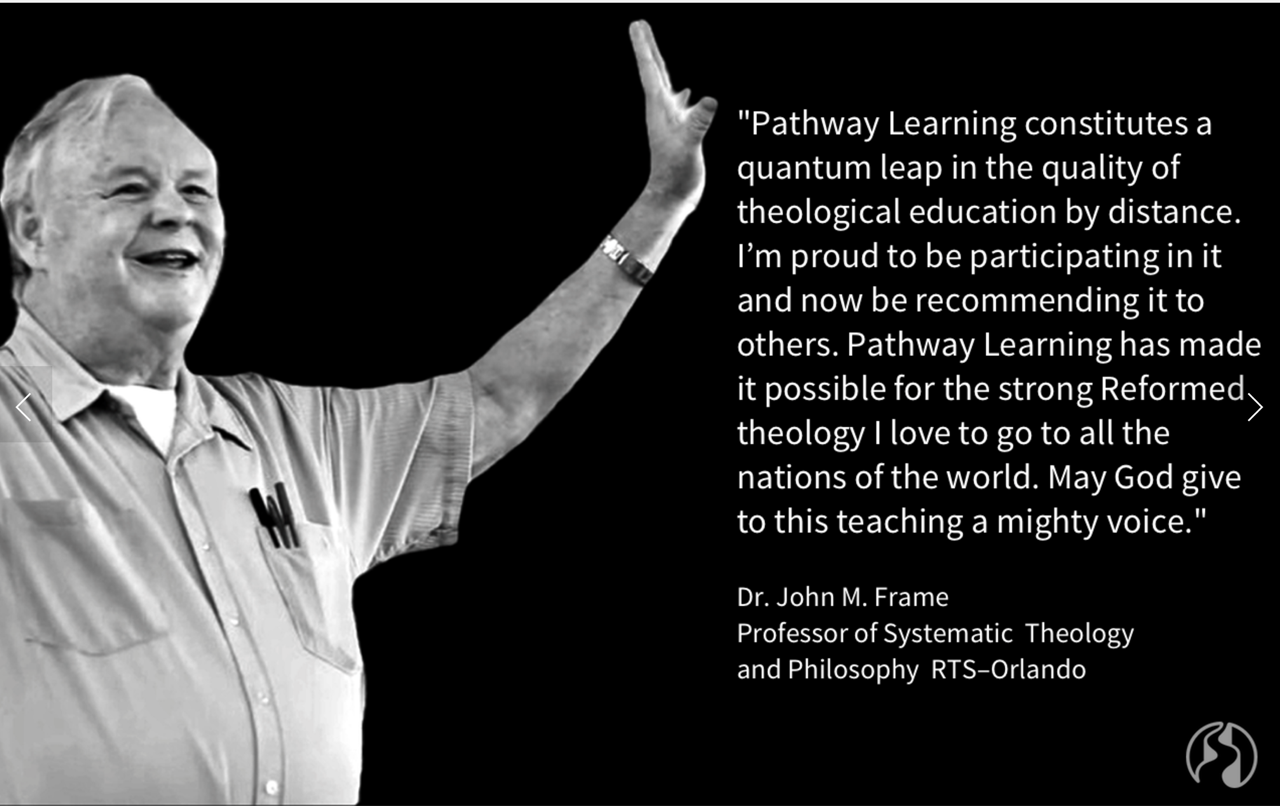Influencers on His Thought (Framing John Frame, Part 2)
After 49 years of distinguished service as a seminary professor at three seminaries, Dr. John Frame is retiring this month. He has been a mentor, faculty colleague, and dear friend–as our seminary offices have been next to each other for the last 16 years. He has distinguished himself as a prolific author and one of America’s foremost theologians and philosophers—significantly shaping the thought of Evangelicalism today.
Many of today’s most influential Christian leaders and authors, like Tim Keller and John Piper, readily acknowledge the significant impact John Frame has had on them. Although widely known and deeply respected in church leadership and academic circles for decades, his works are now, finally, becoming well known to the general public.
This is the second of a four-part series taken from the foreword I wrote for his book, John Frame’s Selected Shorter Writings, Volume 1, by P&R Publishing. I wrote this with the goal of helping to introduce Frame and his writings more widely to the general public, with the hope that more people would begin mining the rich theological, philosophical, and practical gems that have for too long been mostly in the hands of academics and church leaders.
JOHN FRAME believes those with Reformed and evangelical convictions are at risk of being marginalized in our generation because of some Reformed leaders, both inside and outside the academy, espousing unbiblical views of such critical areas as worship, evangelism, Christian spirituality, church planting, missions, and the relationship of the church and culture. [1]
But the good news is that God is raising up a new generation of church leaders and other Christians who are stemming this tide by standing for a robust Reformed theology that includes a biblical view of all these practical areas of ministry. And the theology and philosophy of John Frame is at the forefront, influencing this resurgence of biblical Calvinism among a new generation of church leaders. [2]Frame represents a historic stream of biblical and philosophical thought [3] deeply rooted in the best foundational contributions of Athanasius, Augustine, Anselm, and Aquinas. In his writings you’ll also find the biblical riches rediscovered by the church in the Protestant Reformation by Martin Luther and John Calvin, as well as the reshaping of those biblical truths in the seventeenth century by the English Puritans.Frame’s thought also reflects the Dutch Calvinism of Abraham Kuyper and Herman Bavinck and the Princeton theology of Charles Hodge, B. B. Warfield, and J. Gresham Machen. He writes, “I yield to no one in admiration of three brilliant and godly men, friends of one another, who set the highest standards for Reformed theology in the 1900s:
B. B. Warfield,
Abraham Kuyper, and
Herman Bavinck.”[4]
A handful of professors profoundly shaped his thought while he was in seminary, including
John Murray,
Cornelius Van Til,
Ed Clowney, and
Norm Shepherd.
The three authors he resorts to most often today are Murray, Van Til, and Clowney. [5] Van Til became the greatest single influence on Frame’s apologetics and theology. Other significant influences on his theology include
G. C. Berkouwer,
R. John Rushdoony,
Meredith Kline, and
J. I. Packer.
Frame’s understanding of philosophy has been shaped not only by many of the authors listed above but also by the writings of Plato, Immanuel Kant, and Ludwig Wittgenstein. His emphasis on the importance of not only knowledge and behavior in the Christian life, but also heart affections, is drawn significantly from the writings of Blaise Pascal and Jonathan Edwards (often through the works of John Gerstner and John Piper as Edwards’s contemporary advocates).Although Frame’s primary understanding of Christian apologetics and evangelism has been shaped by Van Til, others have deepened and broadened that understanding, including
C. S. Lewis,
Francis Schaeffer,
Gordon Clark,
C. John (Jack) Miller, and
Vern Poythress (one of his many students whom he now refers to as his teacher.)
As a result of integrating these diverse schools of thought over decades,
John Frame is a rare biblical scholar who has a passion not only for people to gain a biblical understanding of theology, philosophy, apologetics, and ethics, but also for people to learn how to apply these disciplines to practical ministries such as worship, evangelism, discipleship, church planting, and missions.
That’s because, to John Frame, "Theology is application." [6]
If you’re new to reading the works of John Frame (or theological works in general), let me strongly encourage you to take the time to explore his other writings. Here are just a few introductory readings I recommend that you consider to begin priming your theological pump:
Salvation Belongs to the Lord[7]—a brief mini-systematic theology that is easily accessible to the average reader.
Studying Theology as a Servant of Jesus—practical advice for incoming seminary students and all new students of theology.
Browse his website, where you’ll find many of his writings. He shares this website with Vern Poythress, Calvinistic theologian, philosopher, New Testament scholar, and one of his former students
Coming Next: Framing John Frame Pt 3: Why It's Hard to Frame Frame
Click here to read Part 1 of 4: Framing John Frame Pt 1: Introducing The Man and His Message
COMING SOON: "Applied Theology: A Systematic Theologian and a Practical Theologian Apply Theology to Life and Ministry." By Childers & Frame
Don’t miss out on the latest updates on the Applied Theology Project!






